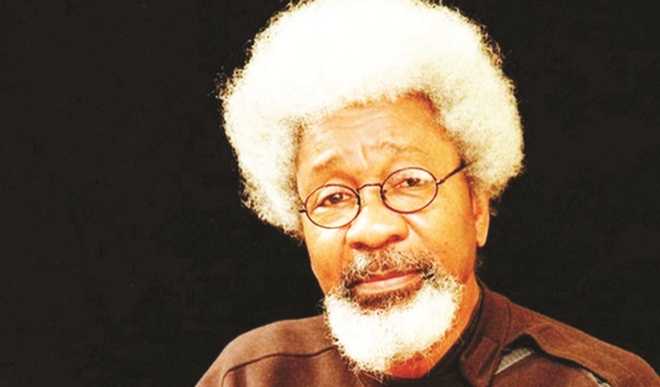
“I love my country I no go lie. Na inside am I go live and die” – Wole Soyinka
Nigeria is in a very difficult situation due to the sharp rise in the volume and spread of conflicts. Last week, Amnesty International released a distressing report on the senseless killings currently going on and lamented that so far, at least 1813 people have been killed between January till date, across 17 states in the country. This death toll almost doubles that of the entire 2017 count. The violence is not really new although the numbers and intensity has increased. Indeed, since the 1990s, violent conflicts have been growing and deepening in Nigeria. The sources include the militancy in the Niger Delta, the Boko Haram insurgency and the growing clashes between constituted authorities and the Shiite Islamic Movement in Nigeria as well as the Igbo secessionist movements. There have also been numerous communal clashes in various states in the country. The most serious violence with the most serious threat to national cohesion has been the deepening and widening attacks and killings between farmers and herders, which have been compounded with growing criminality and cattle rustling. In addition, kidnapping for ransom has become widespread and no one feels safe today.
The violence and destruction are not the most serious problem affecting our country today. Nigerians are even more concerned about the lack of accountability. The killings are done with impunity and the state has failed in its primary responsibility to hold murderers to account. It is this element of impunity that is most distressing to citizens. The Nigerian state is clearly failing in meeting its constitutional obligations of providing security for citizens. I believe that there is a consensus that things cannot continue like this and government must address the security situation, with the objective of securing significant improvement.
As people see atrocities multiplying and no one is being held accountable, we cannot blame them for thinking that the State is complicit in allowing the violence to continue unabated. Conspiracy theories have been emerging spreading narratives of Jihad and conquest to seize land by the President’s so-called ethnic group, the Fulani. I say so-called because the President is not ethnically Fulani even if he presents himself as such. The irony is that when you speak to the Fulani pastoralists, they say that the President is allowing the youth of farming communities to kill them at will because he does not want to create the impression that he is providing them special protection.
The winners today are those who want Nigeria to continue along the path of self-destruction. They are pushing in that direction by mixing in fake news and photos to the reality of true killings and destruction. In other words, they are aggravating and exacerbating an already bad situation to make it worse and fan the embers of discord. They are succeeding because President Buhari’s government has not been showing sufficient concern at the on-going destruction and above all, the security agencies are not carrying out their security provisioning and law enforcement duties with the efficacity Nigerians expect. The President is simply watching them and no one understands why the leadership of security agencies are left in office in spite of their inability to carry out their responsibilities. The aloofness of President Buhari has become a real problem and we cannot make progress until he engages with the growing insecurity directly, shows more concern and empathy and above all responds and acts more decisively.
Government must act but ordinary citizens who want to build Nigeria must also act. We must begin to reassure ourselves that with 200 million people, half Christian and the other half Muslim, it’s impossible for one to destroy the other. We must become less gullible and question the conspiracy theories circulating today. We must remind ourselves that although we have been playing ethnic politics since the colonial era, the exercise of ethnic supremacy has not held sway in our country. We should always remind ourselves that at the epicentre of the current crisis that confronts the Nigerian state is bad governance and not bad tribes and religions. Bad governance manifests itself in the form of corruption, exclusion and state capture by the elites of all ethnic and religious groups, which have led to increased poverty, unemployment and deprivation of citizens, thereby creating conditions and incentives for violence in the country. The entrenchment of a violent political culture that is engineered and sustained by the political class, further heightens these factors.
Above all, we must all strive to build peace because there is a serious risk today that the country could glide towards civil war again if preventive measures are not taken. Such an outcome would be catastrophic for West Africa, and indeed for Africa because of the huge population of the country and the possible gigantic scale of the humanitarian crisis that could be generated. The majority of Nigerians have nowhere to run to while the elite who cause the problems would be in Europe and America enjoying the loot they stole from the Nigerian people.
Given the scale and depth of insecurity and break down of inter-ethnic and inter-religious relations, we need to focus our attention on building effective institutions with a focus on peace building. There is urgency in the institutionalization of conflict management, resolution and peace building mechanisms in the country. There are many institutions in the university system, defence establishments and civil society that engage in peace building in Nigeria. The formal institution charged with the responsibility is the Institute for Peace and Conflict Resolution (IPCR) established in 2000 in response to the rising incidents of conflicts across the country. It’s a policy think tank whose mandate covers research and interventions towards strengthening Nigeria’s response capacity in the promotion of peace, conflict prevention, management and resolution. The IPCR however is placed in a ridiculous institutional location, it is under the Ministry of Foreign Affairs as if it is external diplomacy that will make the peace in Nigeria. The IPCR should be placed where it belongs in the Ministry of Internal Affairs and empowered to do its work.
All states in the country should also establish peace building institutions. So far, only two states have embarked on the path of establishing specialized state level peace building institutions. They are Kaduna and Plateau states. This idea of states establishing conflict resolution agencies is extremely useful as conflicts spread in the nooks and corners of the country, a process that is stretching the capacity of the federal government to understand and respond adequately. Such state institutions could play the important role of preparing regular conflict assessment reports for the state and engaging in conflict monitoring and mitigation activities in all local governments. They should be developed as the intellectual base and practitioner resource centre for conflict management and peace building. States should see themselves as institutions with responsibility of promoting the culture of harmonious co-existence among the diverse ethnic and religious groups in the state.
At this time, it is important that peace building should be routinized and made more effective. We should strive to get out of the practice that whenever there is a breakdown of the peace, the first response is to deploy security forces to restore law and order. Rather, the federal and state governments should become proactive and intervene before there is breakdown of law and order and prevent the conflicts from breaking out in the first place. We have had dozens if not hundreds of reports of commissions of inquiry on various conflicts examining remote and immediate causes but we do not use the recommendations to prevent the recurrence of the conflicts so the vicious cycles continue.
As citizens, we all have a responsibility to rebuild Nigeria. One of the reasons conflicts have spread is that we have allowed community level peace building mechanisms that have been instrumental for harmony and cohesion to disappear. Government has a vital role in peace building but traditional, community and religious leaders, as well as other organized groups within the communities also have a vital role to play. We all need to dig into our history and culture to discover the mechanisms we have used in the past to prevent the escalation of conflicts and conserve cohesion. There is no doubt in my mind that the escalation of violent conflicts between pastoralist and farmer communities is linked to this breakdown of traditional conflict prevention mechanisms. Let’s all rise to the collective challenge of playing positive roles in rebuilding Nigeria.




